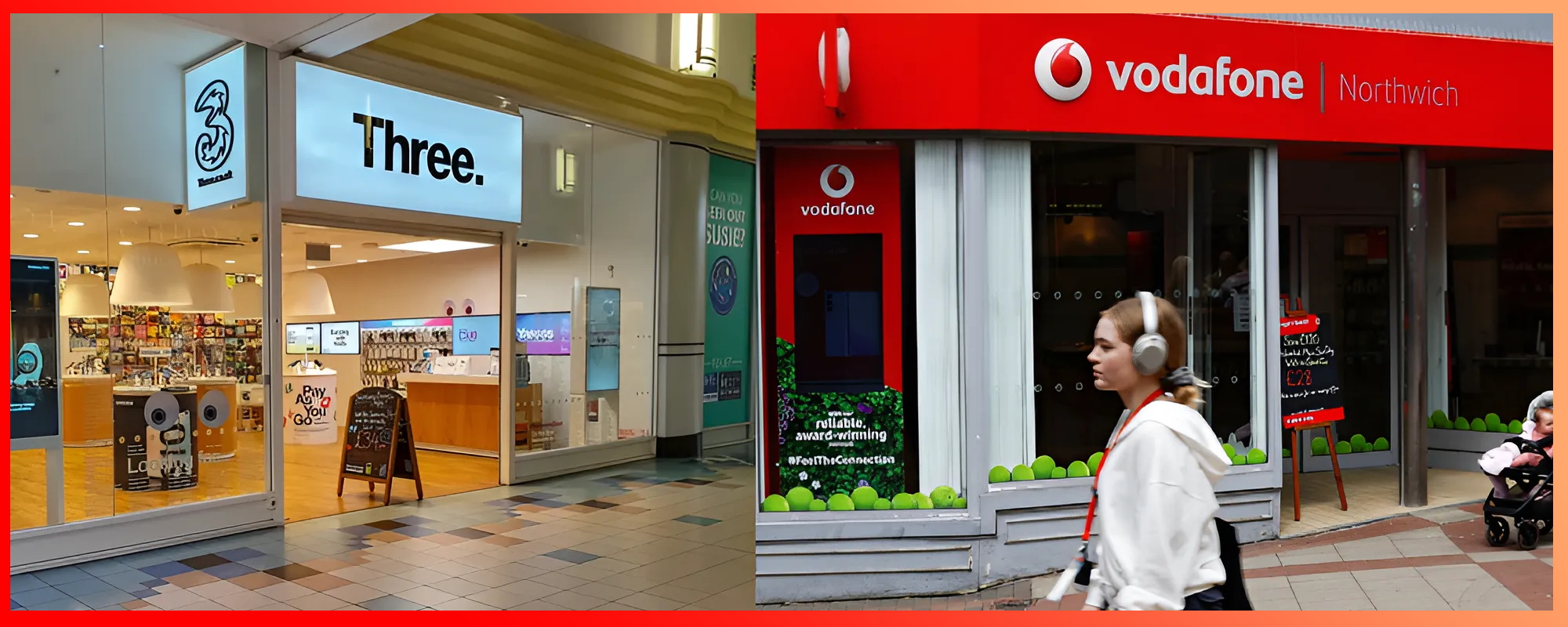Britain has given the green light to a groundbreaking $19 billion merger between Vodafone and Three UK, paving the way for the creation of the country’s largest mobile network provider. This decision, announced by the Competition and Markets Authority (CMA), signifies a pivotal shift in regulatory attitudes, with the potential to reshape the UK’s telecom landscape.
Historic Merger Reshapes the Market
The deal merges Vodafone’s UK operations with those of Hutchison’s Three UK, overtaking competitors BT's EE and Virgin Media O2 in market size. The CMA’s approval came after the companies’ ambitious investment commitments and pricing safeguards outweighed initial concerns about reducing the number of mobile networks from four to three.
“We believe the merger will enhance competition in the UK’s mobile sector, provided Vodafone and Three fulfill the measures we proposed,” stated the CMA.
A Major Shift in Regulatory Policy
This decision is notable as it’s the first instance in a major European market where such a merger has been approved without significant structural remedies, such as creating new competitors. The CMA’s stance aligns with the UK’s push for economic growth and improved infrastructure, particularly under the new Labour government’s emphasis on encouraging investments.
Europe’s telecom operators have long argued that stringent regulatory focus on low prices has hindered investments, leaving the continent’s digital infrastructure trailing behind the United States and Asia. The approval of this merger signals a potential turning point for the industry.
Investment Commitments and Consumer Protections
Vodafone and Three have pledged to invest £11 billion ($14 billion) in a state-of-the-art 5G network, aiming to serve 50 million customers, including those on Vodafone’s network-sharing partner Virgin Media O2. Additionally, the companies have agreed to measures such as selling spectrum to Virgin Media O2, capping specific tariffs, and setting fair contract terms for mobile virtual network operators.
The CMA concluded that three robust operators—Vodafone-Three, BT, and Virgin Media O2—would ensure sufficient competition to drive better services for consumers.
Strategic Implications for the Industry
Vodafone’s CEO, Margherita Della Valle, emphasized that the merger would unlock resources, drive competition, and fuel economic growth by accelerating connectivity improvements. “Advanced 5G capabilities are critical for the UK’s science and technology sectors,” she added.
As the merger proceeds, Vodafone and Three face the challenge of integrating their operations while maintaining customer satisfaction. It remains unclear whether the newly combined company will retain both the Vodafone and Three brands, along with their value-focused sub-brands Voxi and Smarty.
Meanwhile, competitors like BT and Virgin Media O2, both products of earlier fixed-line and mobile mergers, are likely to seize opportunities to strengthen their positions while Vodafone and Three navigate their integration.
A Step Toward Sustainable Growth
Industry experts have welcomed the decision. Karen Egan of Enders Analysis remarked, “Three high-quality networks instead of four weaker ones will deliver better outcomes for consumers and businesses. This move breaks the cycle of low returns and low investment that has plagued the sector.”
Under the agreement, Vodafone will hold a 51% stake in the newly formed company, with an option to acquire the remaining shares after three years, subject to certain conditions.
This landmark approval not only redefines the UK telecom market but also sets a precedent for future mergers across Europe, promising long-term benefits for both consumers and the industry.





















Discussion